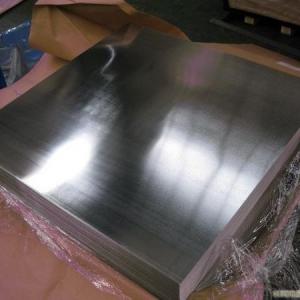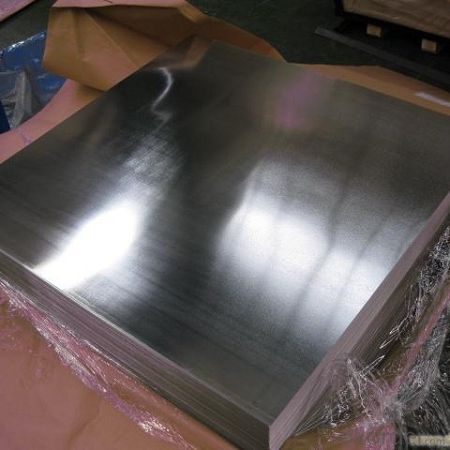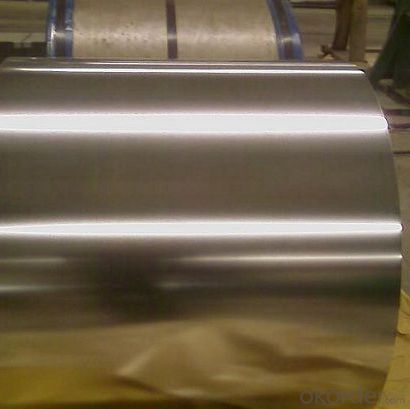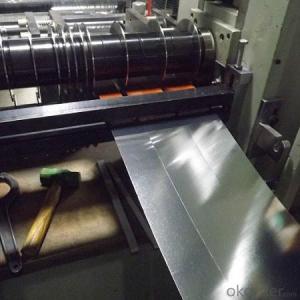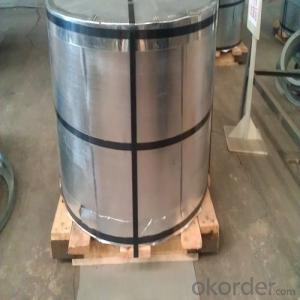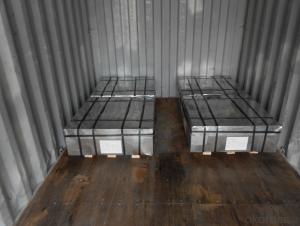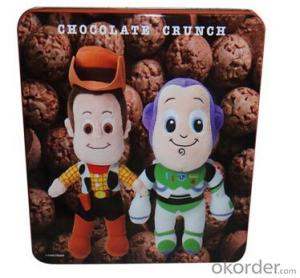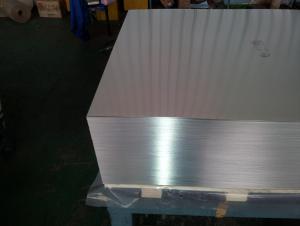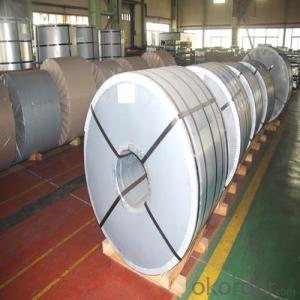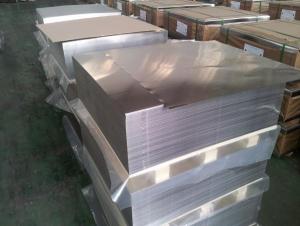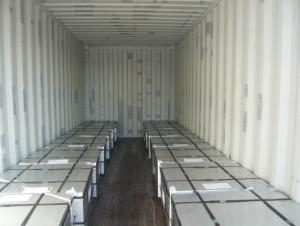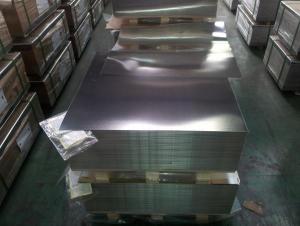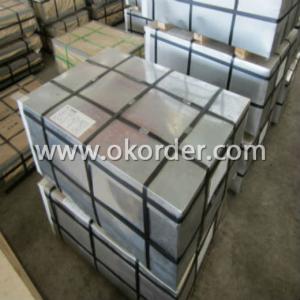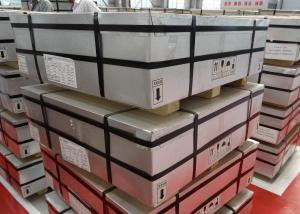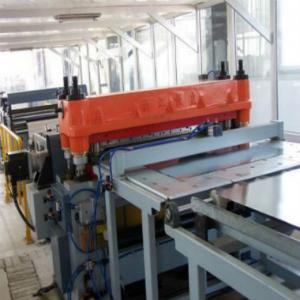Tinplate with Prime Quality for Tin Containers
- Loading Port:
- Tianjin
- Payment Terms:
- TT or LC
- Min Order Qty:
- 25 m.t.
- Supply Capability:
- 20000 m.t./month
OKorder Service Pledge
OKorder Financial Service
You Might Also Like
Specification
Tinplate with Prime Quality for Tin Containers
Tinplate Specification
Tinplate, as the name suggests, is coated on both sides with pure tin at various coating weights between 1 and 12 grams per square meter. It has extremely beautiful metalllic luster as well as excellent properties in corrosion resistance, solder ability, and weld ability.
Tinplate Applications
Tinplate is widely used for making all types of containers, electrical machinery parts and many other products.
Chemicals and painting cans
Dry food cans, such as fancy cans, biscuit cans, milk powder cans, tea cans.
Tinplate Pictures
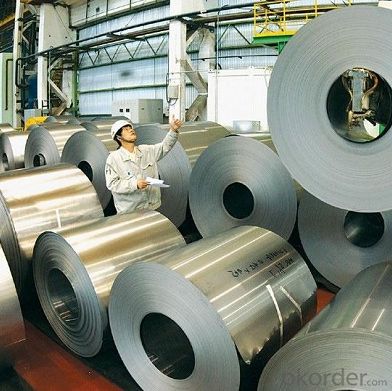
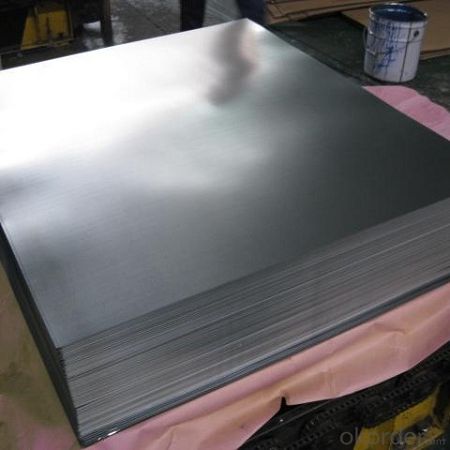
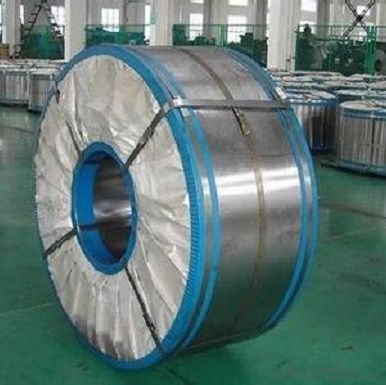
Tinplate Features
Steel Type: MR, SPCC
Temper(BA& CA): T1- T5, DR8- DR10
Coating: 1.1- 8.4g/m^2
Tickness: 0.15- 0.,50mm
Width: 600-1010mm
I.D: 508mm
Coil weight: 3- 10mt
Passivation: 311
Oiling: DOS
Surface finish: Bright, Stone
Quantity for 20 Feet FCL: 20- 25MT
Package: Seaworthy Export Standard Wooden Pallet
Application
Tinplate is widely used for making all types of containers, electrical machinery parts and many other products
Chemicals and painting cans
Dry food ccans, such as fancy cans, biscuit cans, milk powder cans, tea cans.
Liquid food cans, such as edible oil cans, beverage cans, Tomato paste cans
Sea food cans
Crown corks, easy open ends
Electrical machinery parts
Bakeware and household kitchen parts
Production Standard
GB/T 2520-2000
JIS G3303-2002
DIN EN 10202-2001
ASTM A623M-2002
ISO 11949-1995
- Q: How does tinplate handle exposure to different atmospheric conditions?
- Tinplate is known for its excellent resistance to atmospheric conditions. It is highly resistant to corrosion and can withstand exposure to different environmental factors, such as moisture, humidity, and temperature variations. The tin coating on the tinplate acts as a protective layer, preventing the base metal from coming into direct contact with the atmosphere and thus reducing the risk of rusting or oxidation. This makes tinplate a suitable material for various applications, including packaging, construction, and automotive industries, where it needs to withstand different atmospheric conditions.
- Q: What are the different types of tinplate finishes available?
- There are primarily three types of tinplate finishes available: bright, stone, and matte. Bright tinplate has a shiny and reflective surface, stone tinplate has a textured and grainy appearance, and matte tinplate has a smooth and non-reflective finish. These different finishes offer various aesthetic options for packaging and can be chosen based on the desired look and feel of the final product.
- Q: Can tinplate be used for signage?
- Yes, tinplate can be used for signage. It is a versatile material that can be easily shaped and printed on, making it suitable for various signage purposes.
- Q: Can tinplate packaging be used for beverages?
- Yes, tinplate packaging can be used for beverages. Tinplate is commonly used for packaging beverages such as canned drinks and canned juices. It provides a protective and durable barrier that preserves the quality and freshness of the beverages.
- Q: How does tinplate contribute to the reduction of plastic waste?
- Tinplate contributes to the reduction of plastic waste by offering a sustainable alternative for packaging. Tinplate containers, such as cans, are widely used for storing food, beverages, and other products, eliminating the need for single-use plastic packaging. These containers are recyclable and have a high recycling rate, diverting a significant amount of waste from landfills. Additionally, tinplate's durability and protective properties help extend the shelf life of products, reducing food waste and the need for excessive packaging.
- Q: How does tinplate affect the overall product shelf appeal?
- Tinplate enhances the overall product shelf appeal by providing a visually appealing and premium packaging solution. Its shiny and reflective surface adds a touch of sophistication and attractiveness, catching the attention of consumers. Additionally, tinplate's durability and strength protect the product, ensuring it remains intact and visually appealing throughout its shelf life.
- Q: What are the advantages of using tinplate for automotive components?
- There are several advantages of using tinplate for automotive components. Firstly, tinplate is highly corrosion resistant, which helps protect the components from rust and prolongs their lifespan. Additionally, tinplate provides excellent formability, allowing for complex shapes and designs to be easily manufactured. It also offers good strength and durability, ensuring the components can withstand harsh conditions and maintain their structural integrity. Furthermore, tinplate has good heat resistance properties, making it suitable for components that are exposed to high temperatures. Lastly, tinplate is a sustainable material as it is recyclable, contributing to environmental sustainability in the automotive industry.
- Q: How does tinplate perform in terms of fire resistance?
- Tinplate performs well in terms of fire resistance due to its low flammability and high melting point, making it less prone to ignite or support combustion.
- Q: How does tinplate affect the overall cost of packaging?
- Tinplate can have a significant impact on the overall cost of packaging. While tinplate is known for its durability and ability to protect products, it is often more expensive than other packaging materials such as plastic or cardboard. The cost of tinplate includes not only the material itself but also the manufacturing process, transportation, and any additional coatings or finishes. Therefore, the decision to use tinplate for packaging should be carefully considered, weighing its benefits against its higher cost.
- Q: What are the main applications of tinplate in the household goods industry?
- Tinplate is mainly used in the household goods industry for packaging food and beverages, such as canned goods, coffee, tea, and powdered milk. It provides a protective barrier against moisture, air, and light, ensuring the quality and freshness of the products. Additionally, tinplate is also used for making various household items like kitchen utensils, storage containers, and decorative items due to its durability and corrosion resistance properties.
Send your message to us
Tinplate with Prime Quality for Tin Containers
- Loading Port:
- Tianjin
- Payment Terms:
- TT or LC
- Min Order Qty:
- 25 m.t.
- Supply Capability:
- 20000 m.t./month
OKorder Service Pledge
OKorder Financial Service
Similar products
Hot products
Hot Searches
Related keywords
